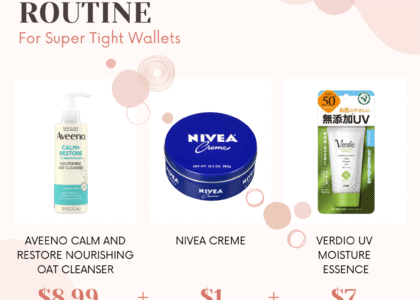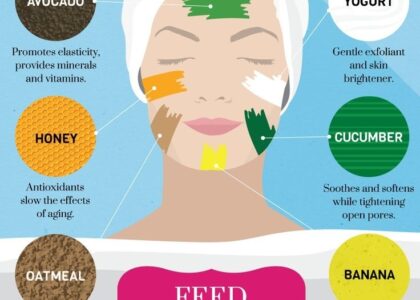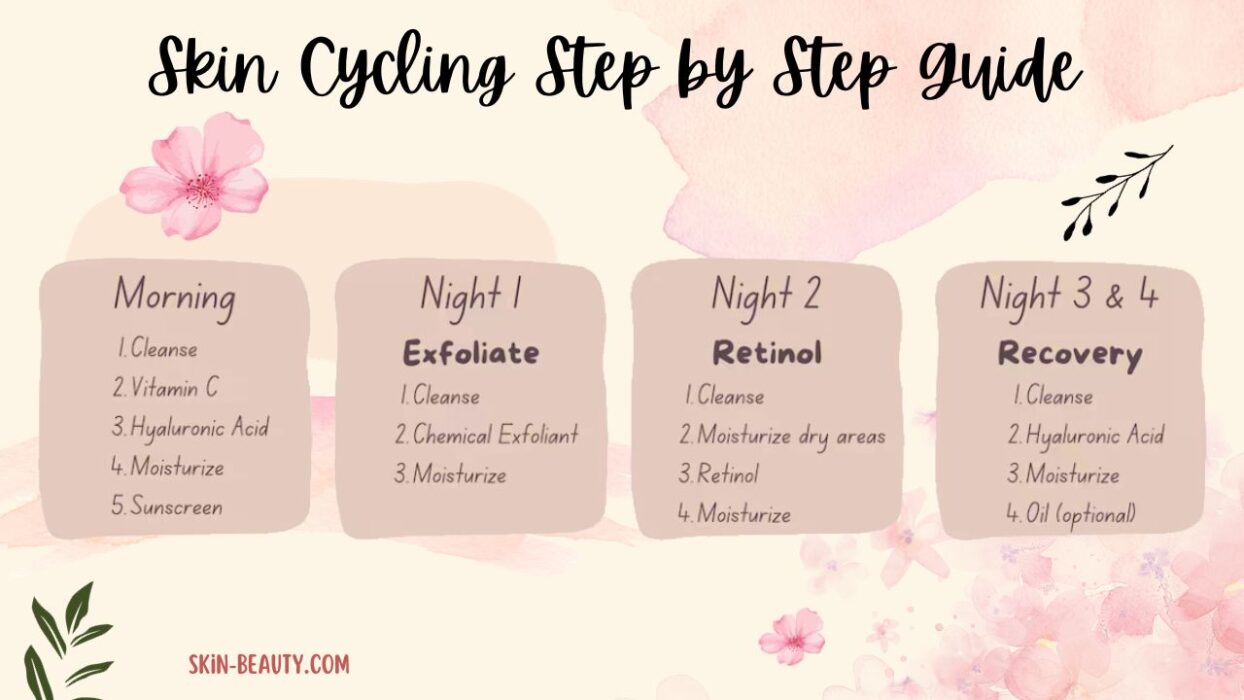Whether you’re just starting your skincare journey or trying to build a simple, effective routine, you’ve come to the right place. The world of skincare can feel overwhelming—serums, toners, acids, routines… where do you even begin? This guide is here to help you understand what your skin truly needs and how to care for it with confidence.
Why Skincare Matters
Your skin is your body’s largest organ, acting as a protective barrier against environmental aggressors. A good skincare routine:
- Keeps your skin healthy and functioning properly
- Helps prevent premature aging
- Reduces the risk of breakouts and irritation
- Boosts your confidence
Step 1: Know Your Skin Type
Understanding your skin type is the foundation of a good routine. Here are the most common types:
- Normal: Balanced, not too oily or dry
- Oily: Produces excess sebum; prone to shine and acne
- Dry: Feels tight or flaky; lacks moisture
- Combination: Oily in the T-zone, dry in other areas
- Sensitive: Easily irritated, prone to redness or allergic reactions
Pro tip: Use a gentle cleanser and wait 30 minutes. If your skin feels tight, it’s likely dry. If it gets shiny, it may be oily.
Step 2: Build a Basic Skincare Routine
Start simple. You don’t need 10 products—just the essentials:
Morning Routine
- Cleanser – Removes oil and impurities
- Moisturizer – Hydrates and strengthens the skin barrier
- Sunscreen – Protects from UV damage (SPF 30 or higher, daily!)
Evening Routine
- Cleanser – Removes makeup, dirt, and pollution
- Moisturizer – Replenishes moisture overnight
That’s it. Once your skin adjusts, you can add targeted products like serums or exfoliants.
Step 3: Learn the Key Ingredients
Certain ingredients are widely recognized for their benefits:
- Hyaluronic Acid – Hydration booster
- Salicylic Acid – Fights acne and unclogs pores
- Niacinamide – Brightens skin and controls oil
- Retinol – Anti-aging and acne treatment (use at night!)
- Vitamin C – Antioxidant that brightens and evens tone
Warning: Not all ingredients mix well (e.g., retinol and vitamin C). Introduce them one at a time.
Step 4: Understand Product Labels
Look for:
- Non-comedogenic: Won’t clog pores
- Fragrance-free: Better for sensitive skin
- Dermatologist-tested: Usually means it’s gone through clinical testing
Avoid:
- Harsh alcohols (can dry skin)
- Heavy fragrances (can cause irritation)
- Over-exfoliating (2–3 times/week is enough)
Step 5: Be Consistent (and Patient)
Skincare is not a quick fix. It can take:
- 1–2 weeks to adjust to a new routine
- 4–6 weeks to see visible changes
- 12+ weeks for long-term results (especially for acne and hyperpigmentation)
Be patient, and don’t constantly switch products!
Step 6: Bonus Tips for Beginners
- Patch test new products to avoid reactions
- Double cleanse if you wear makeup or sunscreen
- Don’t sleep with makeup on
- Stay hydrated and eat a balanced diet
- Get enough sleep—your skin repairs overnight
Common Beginner Mistakes
Over-cleansing or scrubbing skin
Skipping sunscreen (yes, even on cloudy days)
Trying too many new products at once
Expecting overnight results
Final Thoughts
Your skincare routine doesn’t have to be complicated. Start small, stay consistent, and listen to your skin. As you learn more, you can expand your routine based on your needs—but a clean, moisturized, and protected face is the best place to begin.





